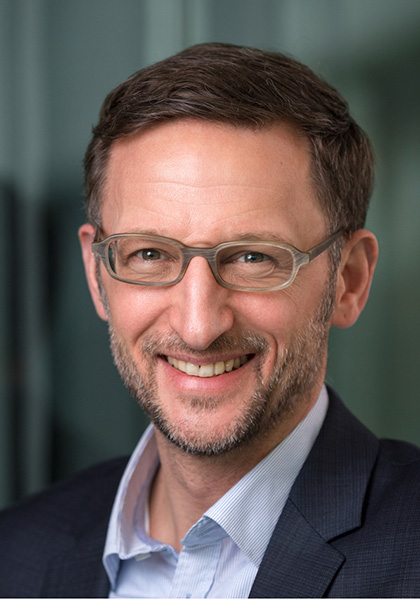Disinformation, Democracy and the Digital Sphere

A democracy can only function if citizens have access to objective information on key issues and can form their own opinions. But isn’t it true that a growing number of people are being taken in by fake news, to the point that they don’t even know what’s real and what’s fake anymore? Recent developments, such as the coronavirus pandemic, US elections, Russian war propaganda and the increasingly automated generation of text, images and sound, give cause for concern, with surveys showing that almost half of Swiss people view disinformation as a major problem. And there have been numerous motions on the subject in the Swiss parliament, in particular on the influence of foreign propaganda. In 2017, the Swiss government still believed that no new regulations were necessary and that keeping an eye on developments would suffice. But things have since changed. To determine what action the government could take, the Federal Office of Communications (OFCOM) granted funding in 2022 for research projects dealing with this issue.
Skeptical Switzerland
One of these projects came about at UZH, headed by communications expert Mark Eisenegger and legal scholar Florent Thouvenin. Little attention has been paid to legal aspects in previous studies commissioned by OFCOM. The interdisciplinary collaboration between the two researchers and their ambition to draw empirical conclusions on effective and legally permissible measures to counter disinformation are therefore particularly interesting.
The Research Center for the Public Sphere and Society (fög), of which Eisenegger is director, conducted a representative survey on the situation in Switzerland back in 2021. It found that most people still trust traditional media and communication from public authorities. They feel able to recognize fake news, are unlikely to share it, and will often even educate family and friends. Content on social media, messaging services and alternative media is generally viewed with a degree of skepticism. “This resilience also has to do with the low level of polarization in Switzerland and its small scale,” explains Eisenegger. “If people share disinformation here, they have to expect reputational damage.”
In addition, Switzerland has a good public service broadcaster in the SRG and a journalistic landscape that is still relatively diverse and is also bound by a common code of conduct. Nevertheless, half of respondents were concerned about fake news and worried that others could be taken in by it. Perhaps with good reason, as the Swiss system of direct democracy is dependent on well-informed public debate. “Factual accuracy, transparency and fairness are absolutely essential for the negotiation of political decisions. Disinformation could potentially wreak great havoc in Switzerland,” says Eisenegger.

Disinformation could potentially wreak great havoc in Switzerland.
It is difficult to gauge how widespread disinformation actually is, however, as the digital platforms grant only limited access to the relevant data. The question of how often disinformation is even believed also remains unclear. What we do know is that those who get nearly all their news from social media rather than journalistic sources are less likely to go out and vote. On this, Eisenegger says: “One danger is that trust in a shared factual basis is eroded.” This fundamental loss of trust is more problematic for a functioning democracy than if misinformation is sometimes taken as truth. But Eisenegger believes that we have to take the problem of disinformation seriously, even if it is less of an issue in Switzerland than in other countries – particularly given the current developments in AI and automated bot accounts.
Who is the arbiter of truth?
Thouvenin and Eisenegger envisage potential measures on a number of levels: the government can issue legal provisions, it can develop shared rules with digital platforms as part of a co-regulation, or it can rely on the industry and platforms to self-regulate. Citizens should also be empowered to recognize disinformation through training and awareness-raising. The two researchers recommend a governance mix, based on a combination of different measures to curb the creation and spread of disinformation on the one hand, and to bolster societal resilience to misinformation on the other (see box).
The starting point for this should be the existing legal framework. The second half of the study therefore sets out an overview of the existing legal provisions that could be used to cover unlawful forms of disinformation. Thouvenin adds: “The Swiss legal system contains a multitude of different rules that allow this, but not from a disinformation perspective, rather to protect the legal personality or personal honor of the individual in question, for example.”
When applying existing rules and when adopting any additional standards to tackle disinformation, we should always bear in mind that freedom of expression is one of the most important fundamental rights in a democracy: “The government should therefore start by ensuring a functioning opinion-forming process through procedural rules. Extreme caution is advised when banning specific statements outright, as the government should not operate as some kind of Ministry of Truth that decides what’s true and false,” says Thouvenin.

A democratic society must be able to tolerate misguided opinions to a certain degree.
A democratic society must be able to tolerate misguided opinions to a certain degree: “You’re allowed to believe that the Earth is flat. That lies beyond the reach of the law. The task of the legal system is to ensure that different views can be held in the public debate. We need to have an open and evolving debate, but we need to have guardrails in place to ensure it works effectively,” he adds.
However, Thouvenin believes that there is greater leeway in relation to foreign states: “Freedom of expression protects citizens vis-à-vis the government, not foreign states vis-à-vis Switzerland, so there is more potential scope for legal action here. The question is how can we identify such actors, who would have to do so, and what action could be taken. Forcing digital platforms to delete foreign propaganda could be a conceivable approach.”
Problematic messaging services
Messaging services, such as Telegram, which allow large groups to share private and encrypted messages, are currently a particular issue. “This is obviously of interest for spreading disinformation,” says Eisenegger. And Thouvenin adds: “The issue here is primarily that access to the content is technically impossible and is incompatible with privacy protections. What could make sense, however, would be to limit the size of chat groups in messaging services to prevent discussions that are relevant to society happening in secret in these large groups.”
One thing that emerges very clearly from this discussion with the two academics is that access to reliable news and information is essential, both for research and for individual political decision-making. This is therefore not only about digital media – good information-driven journalism is also needed, says Mark Eisenegger. “The biggest problem in Switzerland is not disinformation, but the growing number of people who are news deprived, which means they barely consume any reliable and accurate information.” Good media funding is therefore also key, to further build public resilience to disinformation. Florent Thouvenin even sees an opportunity in the growing skepticism towards AI-generated content and bots: “This might even boost demand for trusted news sources. The question now is simply whether and how the traditional media make use of this opportunity.”